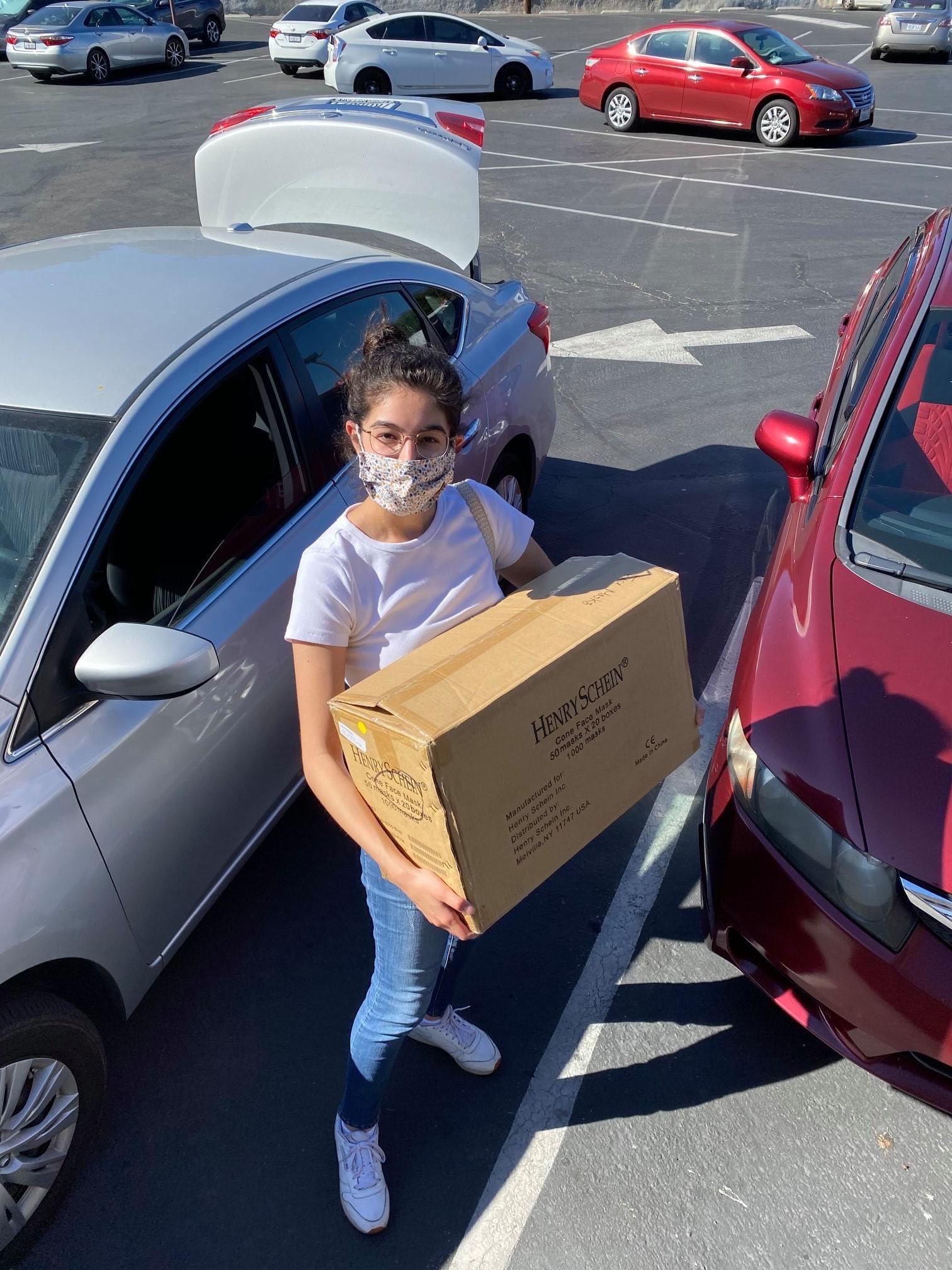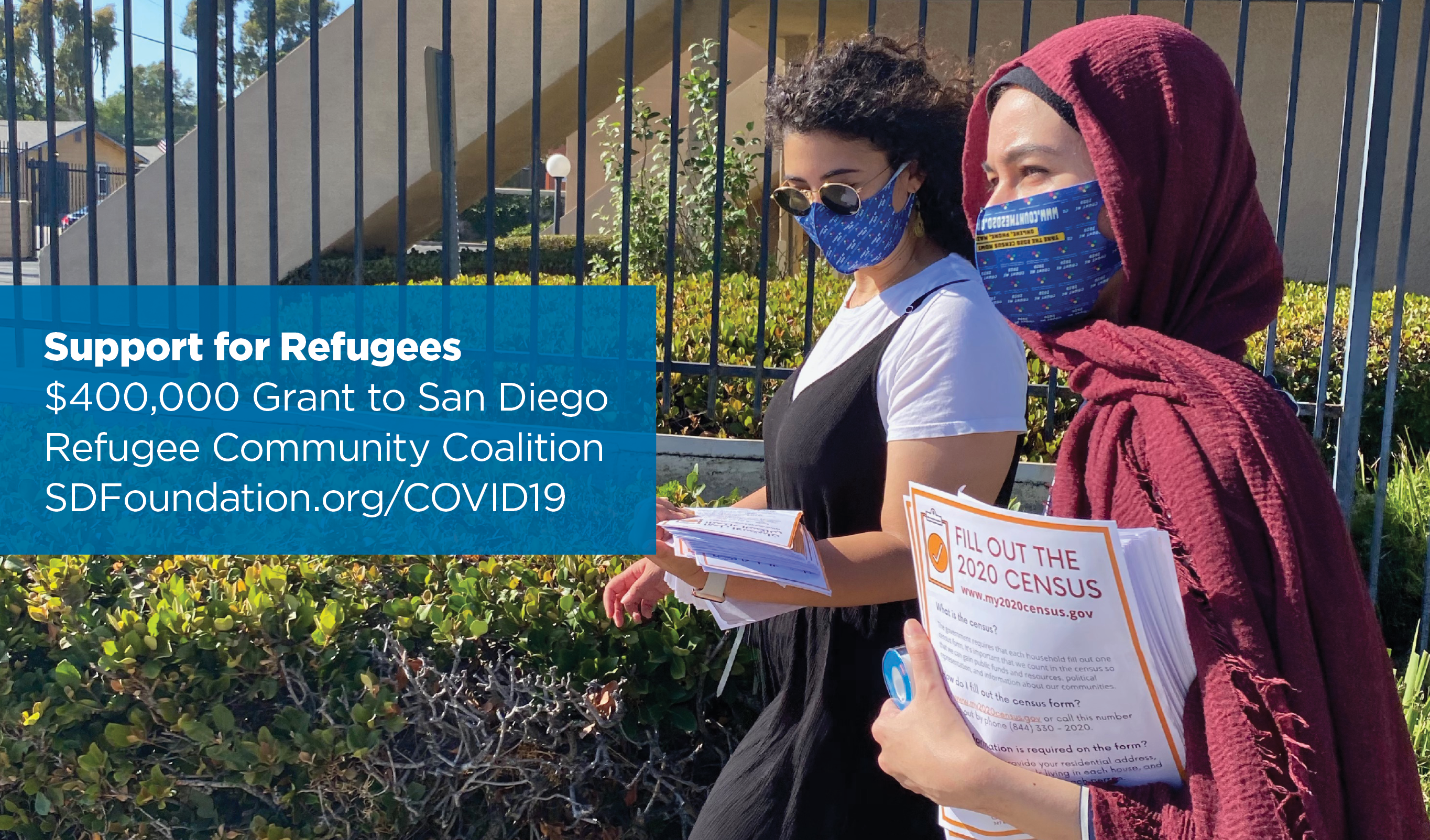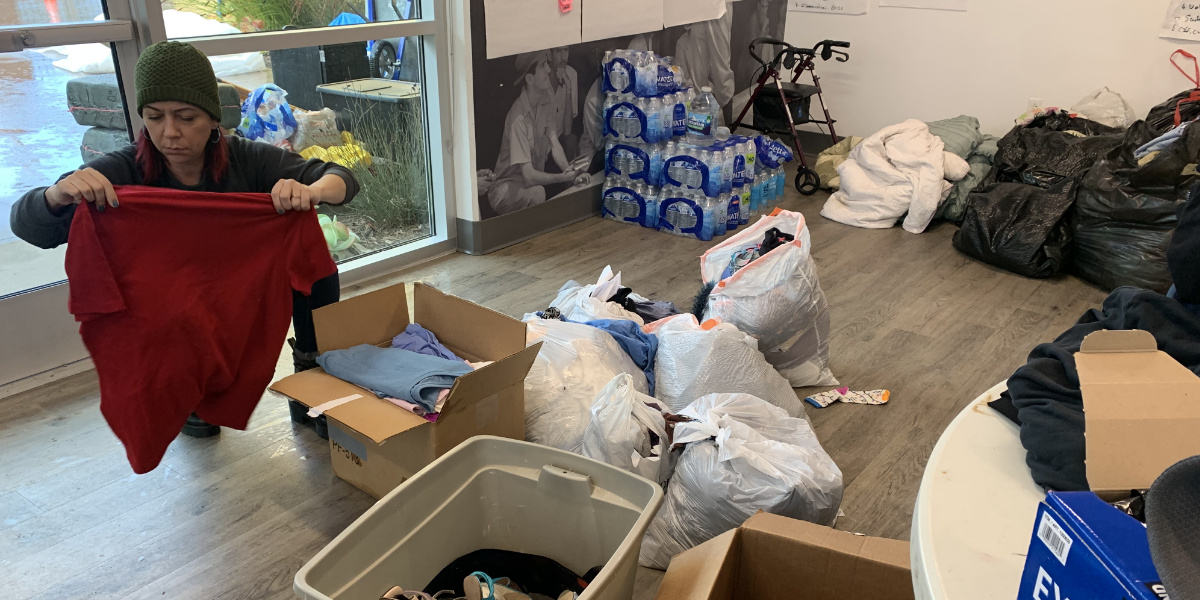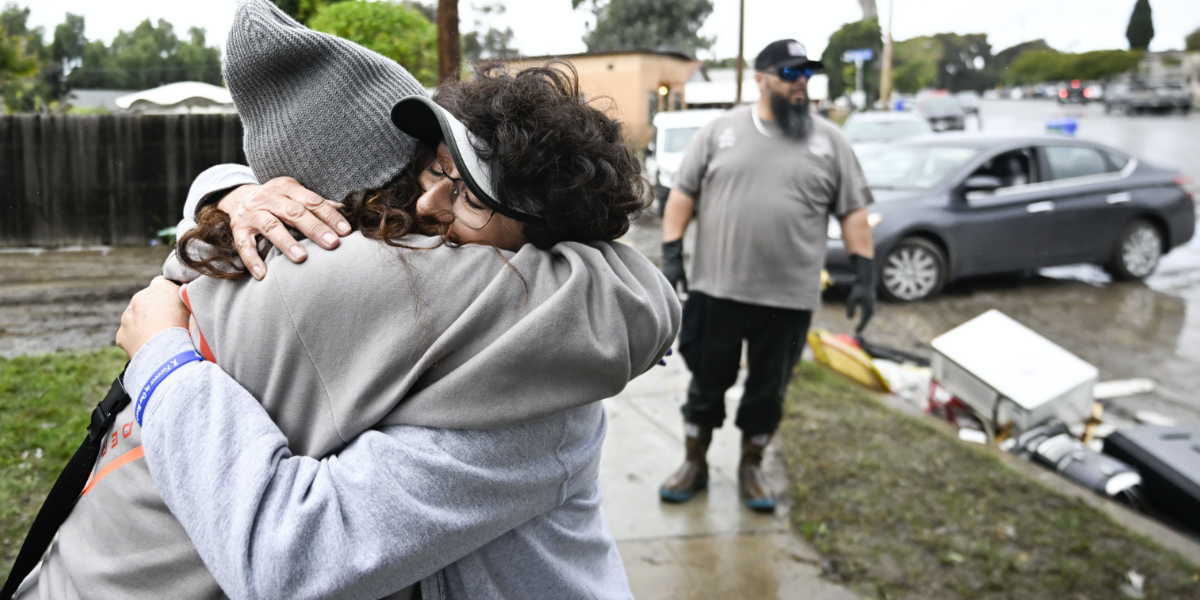The hurt is real.
A new report from the San Diego Refugee Community Coalition (SDRCC) starkly illustrates how the COVID-19 pandemic is hammering the region’s growing population of those who have been forced to flee their homeland. Nearly 75 percent of families surveyed reported a loss of income because of the pandemic’s economic fallout, with an average loss of 29 percent, or $846, per month.
“I have a stressful life, cannot work with fear of the coronavirus and my children are upset being at home,” wrote one parent.
“We are just like everyone else, we are being patient and hoping for good things to come,” wrote another.
A $400,000 grant from the COVID-19 Community Response Fund at The San Diego Foundation is helping to ease the pain. Most of the money forwarded to SDRCC member organizations is for emergency cash assistance to help refugees pay rent, buy food or cover their utility bills. The rest is helping member organizations operating on a shoestring budget cover their costs and stay afloat through the end of the year.
“That was a game changer,” said Valerie Nash, who works closely with the SDRCC, in referring to the grants of up to $30,000 that are helping member organizations stay afloat. “These are small ethnic community-based organizations (ECBOs) led by the communities they serve and they are the ones most at risk during the pandemic even though they are on the front line working with highly marginalized, often distrustful, linguistically challenged populations that are scrambling.”
Sahra Abdi, Executive Director for United Women of East Africa Support Team, agreed.

“The members of our community trust us and we are the first place they come when they are in crisis,” Abdi explained. “Our staff and volunteers speak 20-plus languages, they live and work in the same neighborhoods as the families we all serve. We shop in the same ethnic markets and go to the same mosques and churches. It has been a lot to handle. But we are all resourceful.”
Adbi continued, “We used some of the money provided by The San Diego Foundation to cover costs for things like wages of community outreach workers or navigators, rent for families, and tutors for kids who are struggling. Those funds made a huge difference to our organization and to hundreds of families. Our staff has also helped families access rental assistance programs, unemployment assistance and Pandemic EBT. They have distributed donations of personal protective equipment, diapers and food. I would guess that for every dollar we gave as an emergency grant, at least five more dollars were leveraged through helping people fill out application forms and telling them what help was out there.”
Life as a Refugee
Refugee families in San Diego County were already struggling before the pandemic. For example, Census data for the Colina del Sol neighborhood in San Diego’s City Heights, where more than half of residents are foreign born, shows the median income is just $27,410 annually.
The SDRCC comprises the African Coalition Workforce, the Haitian Bridge Alliance, the Horn of Africa, License to Freedom, the Majdal Center, the Partnership for the Advancement of New Americans, the Refugee Assistance Center, the Somali Bantu Community of San Diego, the Southern Sudanese Community Center of San Diego, the Karen Organization of San Diego and the United Women of East Africa Support Team. Their responsibilities have grown consistently over the years; more than 40 percent of the approximately 50,000 refugees moving to California from 2009 to 2017 settled in San Diego, and an additional 2,229 refugees settled in the region from 2017 to 2019.
The SDRCC COVID-19 Refugee Community Impact Report was completed after contacting 306 families (representing 1,400 residents) from 18 countries in Africa, the Middle East, Central and South Asia and the Caribbean. A survey was administered in 12 languages, and included a focus group session and interviews with 11 community leaders
Some 30 percent of refugee families reported canceling or missing health appointments because of the pandemic. More than 40 percent of refugees reported having at least one family member who has lost a job,. and an additional 4.3 percent have had to close a business. Sixty percent of families have not been able to pay their rent in full, and 85 percent of respondents say their children are not getting the support they need to participate in distance learning at school.
Offering a Lifeline
The COVID-19 Community Response Fund allowed SDRCC agencies to distribute more than $247,000 as emergency grants to 540 families. More distributions are on the horizon.
“Every week since March, we have families reaching out asking for help,” Abdi said. “We are giving them one-time emergency grants and they are mostly using the money to pay their rent or bills. A lot of people are scared of being evicted and owing money to landlords who are not understanding and who are already harassing them. Just last night we had a young man come in very worried. He was an Uber driver and he was sharing an apartment with two other drivers, but they moved out at the end of last month. The rent is $1,500 which was okay for the three of them but not for one person. He is in total panic and distress. We are going to help him apply for unemployment assistance as well as money to cover the part of this month’s rent that he doesn’t have.”
“I was also talking to a young mother last week,” continued Abdi. “She was thanking me for everything we are doing to help her and her kids during this time. I let her know that we are not doing this alone. The people of San Diego care about her and that our staff would continue to be there for her.” You can help San Diego refugee families by donating to the COVID-19 Community Response Fund today.




